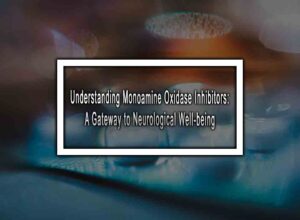Table of Contents
ToggleHere Are Some Benefits Of Caffeine
Coffee is one of the most loved beverages in the world. Almost everyone needs a cup of coffee to start their day. One of the main reasons behind the popularity of coffee is caffeine. Caffeine is a natural stimulant found in coffee beans, tea leaves, and other plants. Caffeine has many benefits that can improve your mental and physical health. This article will explore the different benefits of caffeine and how it can improve your overall well-being.
Improved Physical Performance
Caffeine can be an excellent pre-workout supplement for athletes and fitness enthusiasts. Caffeine stimulates the central nervous system, which can increase endurance, strength, and focus. This is because caffeine stimulates the release of adrenaline, which can trigger the fight-or-flight response and provide a quick burst of energy. Caffeine can also increase the production of dopamine, which can improve mood and reduce the perception of effort during exercise.
Several studies have shown that caffeine can enhance physical performance in various sports. For example, a study conducted by the Journal of Applied Physiology found that caffeine can improve endurance in cyclists by up to 24%. Another study published in the International Journal of Sports Nutrition and Exercise Metabolism found that caffeine can enhance speed and strength in rugby players.
Weight Loss
One of the benefits of caffeine can also aid in weight loss. Caffeine can suppress appetite and increase metabolism, which can lead to a decrease in caloric intake and an increase in fat burning. Caffeine can also reduce the absorption of carbohydrates in the gut, which can lead to a decrease in blood sugar levels.
Several studies have shown that caffeine can aid in weight loss. For example, a study published in the American Journal of Clinical Nutrition found that caffeine can increase energy expenditure by up to 11%. Another study conducted by the International Journal of Obesity found that caffeine can stimulate fat burning by up to 29%.
Improved Mental Performance
Some of the benefits of caffeine to enhance your mental performance. Caffeine can improve concentration, memory, and alertness, which can be useful in a variety of settings, including work, school, and daily life. This is because caffeine blocks the adenosine receptors in the brain, which can make you feel more awake and alert.
Several studies have shown that caffeine can improve mental performance. For example, a study published in the Journal of Alzheimer’s Disease found that caffeine can improve memory performance in people with Alzheimer’s disease. Another study published in Psychopharmacology found that caffeine can improve attention and reaction time in healthy adults.
Reduced Risk of Certain Diseases
Caffeine may also have a protective effect against certain diseases. Studies have shown that caffeine can reduce the risk of several diseases, including Parkinson’s disease, Alzheimer’s disease, Type 2 diabetes, and liver disease.
For example, a study published in the Journal of Alzheimer’s Disease found that caffeine can reduce the risk of cognitive decline in women. Another study conducted by the Diabetes Prevention Program found that caffeine can reduce the risk of Type 2 diabetes in high-risk individuals.
Conclusion
The benefits of caffeine are that can improve your physical and mental health. Caffeine can enhance physical performance, aid in weight loss, improve mental performance, and reduce the risk of certain diseases. However, it is essential to consume caffeine in moderation, as excessive consumption can lead to negative side effects such as anxiety, insomnia, and increased heart rate. The recommended daily intake of caffeine is 400 mg, which is roughly equivalent to four cups of coffee. Overall, the benefits of caffeine can be an excellent addition to a healthy lifestyle when consumed in moderation.
Benefits Of Caffeine FAQ
Here are the most common questions about the benefits of caffeine.
u003cstrongu003eHow much caffeine should I have in a day?u003c/strongu003e
The recommended daily intake of caffeine is up to 400 mg for healthy adults. This is equivalent to about four cups of coffee or 10 cans of soda. However, it is important to note that caffeine sensitivity can vary from person to person, so it is best to listen to your body and monitor your intake accordingly.
u003cstrongu003eIs caffeine addictive?u003c/strongu003e
Caffeine is a mild stimulant and can be habit-forming. However, it is not typically considered addictive in the way that drugs like nicotine or opioids are. People who regularly consume high amounts of caffeine may experience withdrawal symptoms such as headaches and irritability when they stop consuming it.
u003cstrongu003eAre there any negative side effects of caffeine?u003c/strongu003e
While caffeine can have many benefits, it can also have negative side effects such as anxiety, jitters, increased heart rate, and trouble sleeping. It can also exacerbate certain health conditions such as acid reflux and high blood pressure. It is important to monitor your own caffeine intake and listen to your body to see how it affects you personally.
u003cstrongu003eWhere can I find caffeine?u003c/strongu003e
Caffeine can be found in a variety of products such as coffee, tea, soda, chocolate, energy drinks, and certain medications. It is important to read labels and be mindful of your caffeine intake from all sources.
Is it okay to consume caffeine during pregnancy?
Moderate caffeine consumption (less than 200 mg per day) is generally considered safe during pregnancy. However, it is important to consult with a healthcare provider about what is best for your individual situation.
Can children consume caffeine?
While caffeine is generally safe for children in small amounts, it is recommended to limit their intake. The American Academy of Pediatrics recommends that children under the age of 12 avoid caffeine, and teenagers consume no more than 100 mg per day.
More like this: 9 Health Benefits Of Soursop












